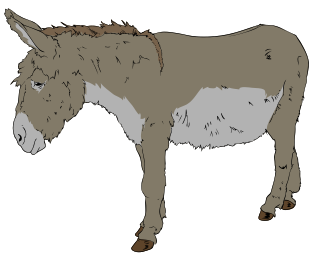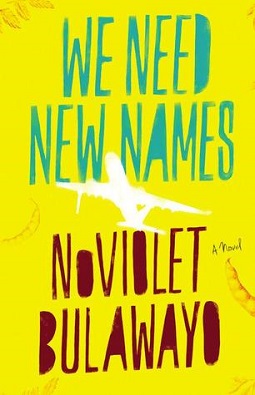
Animal Farm is a beast fable, in the form of a satirical allegorical novella, by George Orwell, first published in England on 17 August 1945. It tells the story of a group of anthropomorphic farm animals who rebel against their human farmer, hoping to create a society where the animals can be equal, free, and happy. Ultimately, the rebellion is betrayed and, under the dictatorship of a pig named Napoleon, the farm ends up in a state as bad as it was before.
Dambudzo Marechera was a Zimbabwean novelist, short story writer, playwright and poet. His short career produced a book of stories, two novels, a book of plays, prose, and poetry, and a collection of poetry. His first book, a fiction collection entitled The House of Hunger (1978), won the Guardian Fiction Prize in 1979. Marechera was best known for his abrasive, heavily detailed and self-aware writing, which was considered a new frontier in African literature, and his unorthodox behaviour at the universities from which he was expelled despite excelling in his studies.

Benjamin is a donkey in George Orwell's 1945 novel Animal Farm. He is also the oldest of all the animals. He is less straightforward than most characters in the novel, and a number of interpretations have been put forward to which social class he represents as regards to the Russian Revolution and the Soviet Union. Benjamin also represents the old people of historical Russia because he remembers the old laws that have been changed.
Sarah Ladipo Manyika FRSL is a British-Nigerian writer of novels, short stories and essays and an active member of the literary community, particularly supporting and amplifying young writers and female voices. She is author of two well received novels, In Dependence (2009) and Like A Mule Bringing Ice Cream To The Sun (2016), as well as the non-fiction collection Between Starshine and Clay: Conversations from the African Diaspora (2022), and her writing has appeared in publications including Granta, Transition, Guernica, and OZY, and previously served as founding Books Editor of OZY. Manyika's work also features in the 2019 anthology New Daughters of Africa.

Petina Gappah is a Zimbabwean lawyer and writer. She writes in English, though she also draws on Shona, her first language. In 2016, she was named African Literary Person of the Year by Brittle Paper. In 2017 she had a DAAD Artist-in-Residence fellowship in Berlin.

NoViolet Bulawayo is the pen name of Elizabeth Zandile Tshele, a Zimbabwean author. In 2012, the National Book Foundation named her a "5 under 35" honoree. She was named one of the Top 100 most influential Africans by New African magazine in 2014. Her debut novel, We Need New Names, was shortlisted for the 2013 Booker Prize, and her second novel, Glory, was shortlisted for the 2022 Booker Prize, making her "the first Black African woman to appear on the Booker list twice".

Zukiswa Wanner is a South African journalist, novelist and editor born in Zambia and now based in Kenya. Since 2006, when she published her first book, her novels have been shortlisted for awards including the South African Literary Awards (SALA) and the Commonwealth Writers' Prize. In 2015, she won the K Sello Duiker Memorial Literary Award for London Cape Town Joburg (2014). In 2014, Wanner was named on the Africa39 list of 39 Sub-Saharan African writers aged under 40 with potential and talent to define trends in African literature. In 2020, she was awarded the Goethe Medal alongside Ian McEwan and Elvira Espejo Ayca, making Wanner the first African woman to win the award.
Kwela Books is a South African publishing house founded in Cape Town in 1994 as a new imprint of NB Publishers.

The 9mobile Prize for Literature was created by Etisalat Nigeria in 2013, and is the first ever pan-African prize celebrating first-time African writers of published fiction books. Awarded annually, the prize aims to serve as a platform for the discovery of new creative talent out of the continent and invariably promote the burgeoning publishing industry in Africa. The winner receives a cash prize of £15,000 in addition to a fellowship at the University of East Anglia.
The 2013 Booker Prize for Fiction was awarded on 15 October 2013 to Eleanor Catton for her novel The Luminaries. A longlist of thirteen titles was announced on 23 July, and these were narrowed down to a shortlist of six titles, announced on 10 September. The jury was chaired by Robert Macfarlane, who was joined by Robert Douglas-Fairhurst, Natalie Haynes, Martha Kearney, and Stuart Kelly. The shortlist contained great geographical and ethnic diversity, with Zimbabwean-born NoViolet Bulawayo, Eleanor Catton of New Zealand, Jim Crace from England, Indian American Jhumpa Lahiri, Canadian-American Ruth Ozeki and Colm Tóibín of Ireland.

Ellah Wakatama, OBE, Hon. FRSL, is the Editor-at-Large at Canongate Books, a senior Research Fellow at Manchester University, and Chair of the AKO Caine Prize for African Writing. She was the founding Publishing Director of the Indigo Press. A London-based editor and critic, she was on the judging panel of the 2017 International Dublin Literary Award and the 2015 Man Booker Prize. In 2016, she was a Visiting Professor & Global Intercultural Scholar at Goshen College, Indiana, and was the Guest Master for the 2016 Gabriel Garcia Marquez Foundation international journalism fellowship in Cartagena, Colombia. The former deputy editor of Granta magazine, she was the senior editor at Jonathan Cape, Random House and an assistant editor at Penguin. She is series editor of the Kwani? Manuscript Project and the editor of the anthologies Africa39 and Safe House: Explorations in Creative Nonfiction.

We Need New Names is the 2013 debut novel of expatriate Zimbabwean writer NoViolet Bulawayo. A coming-of-age story, We Need New Names tells of the life of a young girl named Darling, first as a 10-year-old in Zimbabwe, navigating a world of chaos and degradation with her friends, and later as a teenager in the Midwest United States, where a better future seems about to unfold when she goes to join an aunt working there.
Cassava Republic Press is a steering African book publishing company established in Nigeria in 2006 and headed by Bibi Bakare-Yusuf, with a focus on affordability, the need to find and develop local talent, and to publish African writers too often celebrated only in Europe and America. Cassava Republic's stated mission is "to change the way we all think about African writing. (...) to build a new body of African writing that links writers across different times and spaces." The publishing house is considered to be "at the centre of a thriving literary scene" that has seen Nigerian writers in particular, as well as writers from elsewhere on the African continent, having considerable success both at home and internationally. ThisDay newspaper has stated of the publishing house that "it is credited with innovation. From driving down the cost of books to using digital media to drive sales, Cassava has invariably sought to redefine the African narrative."
Novuyo Rosa Tshuma is a Zimbabwe-born writer and professor of creative writing. She is the author of Shadows, a novella and House of Stone, a novel.

Imachibundu Oluwadara Onuzo is a Nigerian novelist. Her first novel, The Spider King's Daughter, won a Betty Trask Award, was shortlisted for the Dylan Thomas Prize and the Commonwealth Book Prize, and was longlisted for the Desmond Elliott Prize and the Etisalat Prize for Literature.

Ayodele Olofintuade is a Nigerian writer, journalist, and feminist. She identifies as queer and non-binary in Nigeria, which is an anti-LGBTQ country.

Girl, Woman, Other is the eighth novel by Bernardine Evaristo. Published in 2019 by Hamish Hamilton, it follows the lives of 12 characters in the United Kingdom over the course of several decades. The book was the co-winner of the 2019 Booker Prize, alongside Margaret Atwood's The Testaments.
Wanjikũ wa Ngũgĩ is a Kenyan writer, who has lived and worked in Eritrea, Zimbabwe and Finland. She is the founder and former director of the Helsinki African Film Festival (HAFF). Also a political analyst, she is a member of the editorial board of Matatu: Journal for African Literature and Culture and Society, and has been a columnist for the Finnish development magazine Maailman Kuvalehti. Among journals and newspapers in which her work has appeared are The Herald (Zimbabwe), The Daily Nation, Business Daily, Pambazuka News and Chimurenga. She is the author of a novel published in 2014 and a contributor to anthologies including New Daughters of Africa: An International Anthology of Writing by Women of African Descent, Nairobi Noir.

The Spider King's Daughter is a 2012 novel written by Nigerian writer Chibundu Onuzo. It was first published on March 1, 2012, by Faber and Faber.












